Master How to Verify Property in Bangalore in 7 Easy Steps
How to verify property in Bangalore is the first question every smart buyer should ask. This detailed playbook explains how to verify property in Bangalore quickly, safely, and legally. Follow every stage to confirm a clear title, flow of ownership, competency to execute a sale transaction, thereby avoiding hidden dues, and remain stress-free after signing the property documents.
1. Why Verification Matters
Every Bangalore property carries decades of paperwork. A single missing link deed can erase your ownership and lead to property dispute litigation and multiplicity of cases in courts. Knowing how to verify property in Bangalore prevents fraud, stops illegal construction, and protects loans. Verification costs little compared to litigation.
2. 60‑Second Verification Checklist
Use this quick‑fire checklist to gauge a property’s health in one minute before you dive deeper, ideal for site visits and open‑house meetings.
|
✔︎ |
Task |
Outcome |
|---|---|---|
|
1 |
Review the parent and sale deeds |
Establishes a clear ownership chain |
|
2 |
Pull a 30‑year Encumbrance Certificate |
Detects mortgages or court orders |
|
3 |
Confirm Khata and tax paid status |
Prove revenue records are clean |
|
4 |
Check land‑use zoning on the DP map |
Stops demolition risk |
|
5 |
Compare the approved plan with the built structure |
Avoids deviation penalties |
|
6 |
Demand Occupancy Certificate |
Confirms safe completion |
|
7 |
Inspect physical boundaries on site |
Detects encroachment |
|
8 |
Search civil courts for pending suits |
Flags hidden litigation |
|
9 |
Verify water, power, and maintenance dues |
Prevents unpaid bills from passing to you |
|
10 |
Compile a due diligence report |
Gives a single, trusted summary |
(Keep this table handy while learning how to verify property in Bangalore.)
3. Step‑By‑Step: How to Verify Property in Bangalore
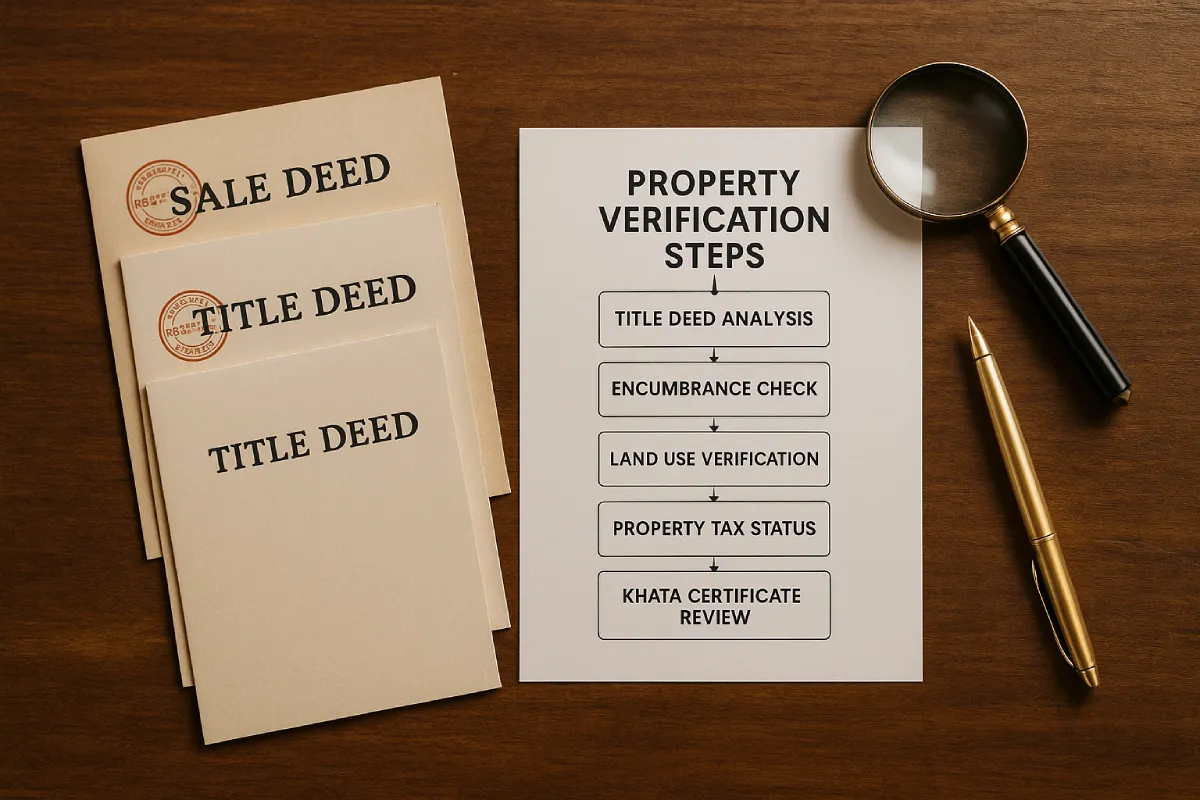
This section breaks the entire verification journey into clear, numbered tasks, ensuring you cover title, tax, zoning, and litigation checks in logical order so no legal blind spot remains before you part with even a token advance.
3.1 Collect Mother Deeds

Start with every earlier deed. Ask for the partition, gift, and sale deeds covering 30 years. Ensure survey numbers match revenue maps. This first step in how to verify property in Bangalore builds the foundation.
3.2 Search the Encumbrance Register
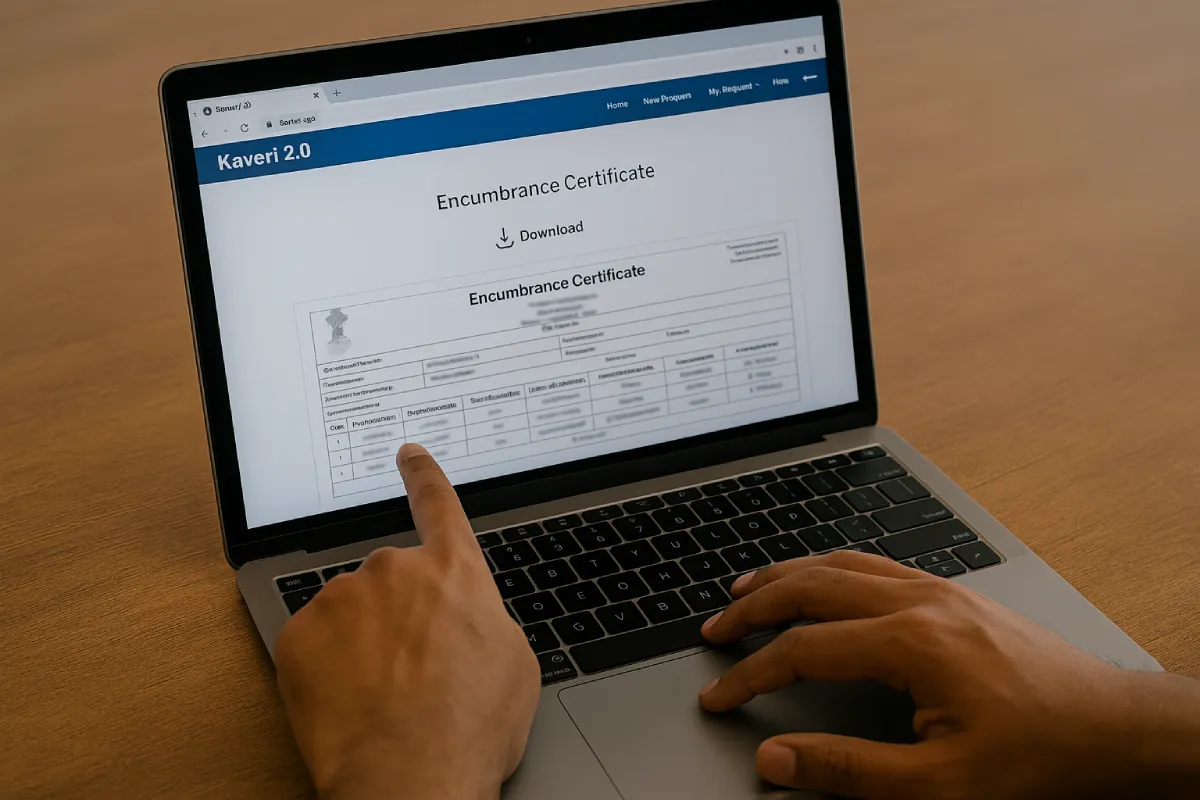
Log in to Kaveri 2.0. Generate an Encumbrance Certificate for the survey number and party names. Review Part B entries for mortgages, writs, and attachments. No encumbrance means free from hidden rights or interest or charges on the property.
3.3 Check Khata and Tax Status
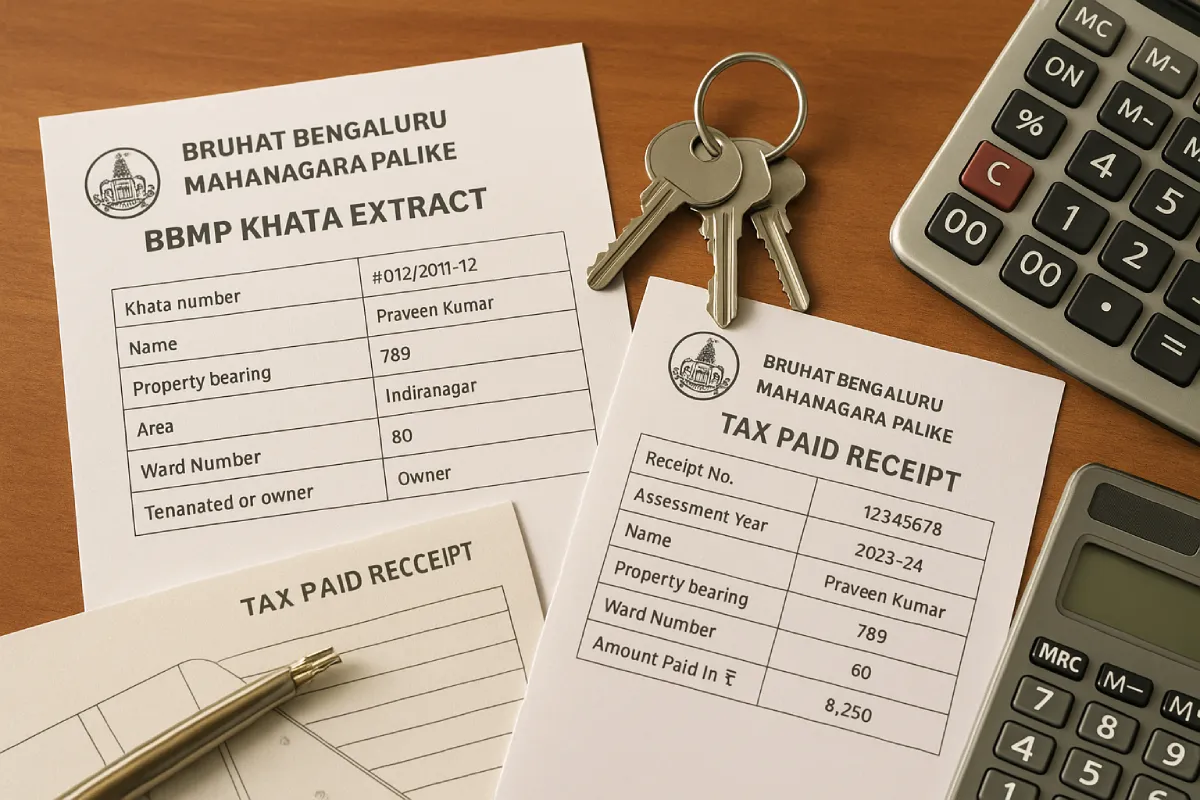
Obtain the latest Khata Extract and Khata Certificate online. Cross‑check BBMP or BDA tax receipts. Unpaid taxes follow the land, not the seller. Settle dues before final payment.
3.4 Confirm Zoning and Land Use
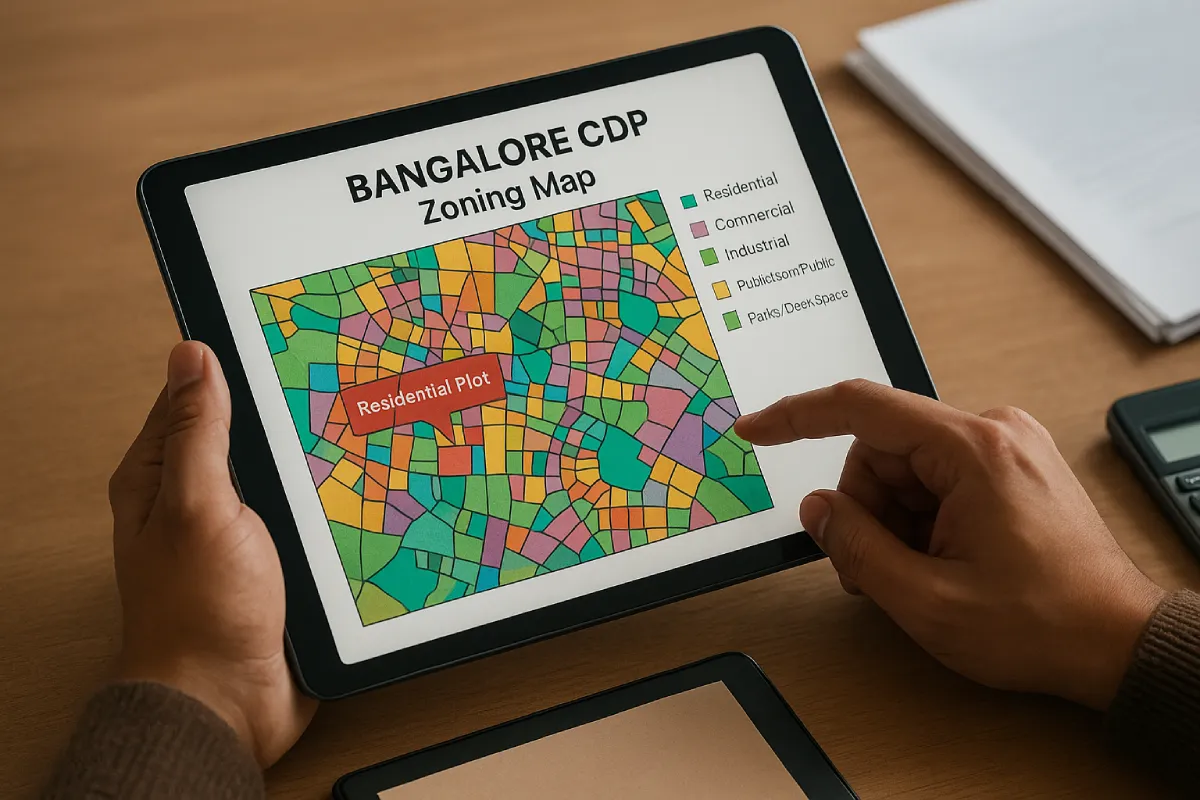
Download the Revised Master Plan or CDP layer for the ward. Ensure the plot is marked residential when buying a home. Commercial or greenbelt zoning can trigger demolition or fines. This tip separates amateurs from experts who know how to verify property in Bangalore.
3.5 Match Plan, Sanction, and Structure
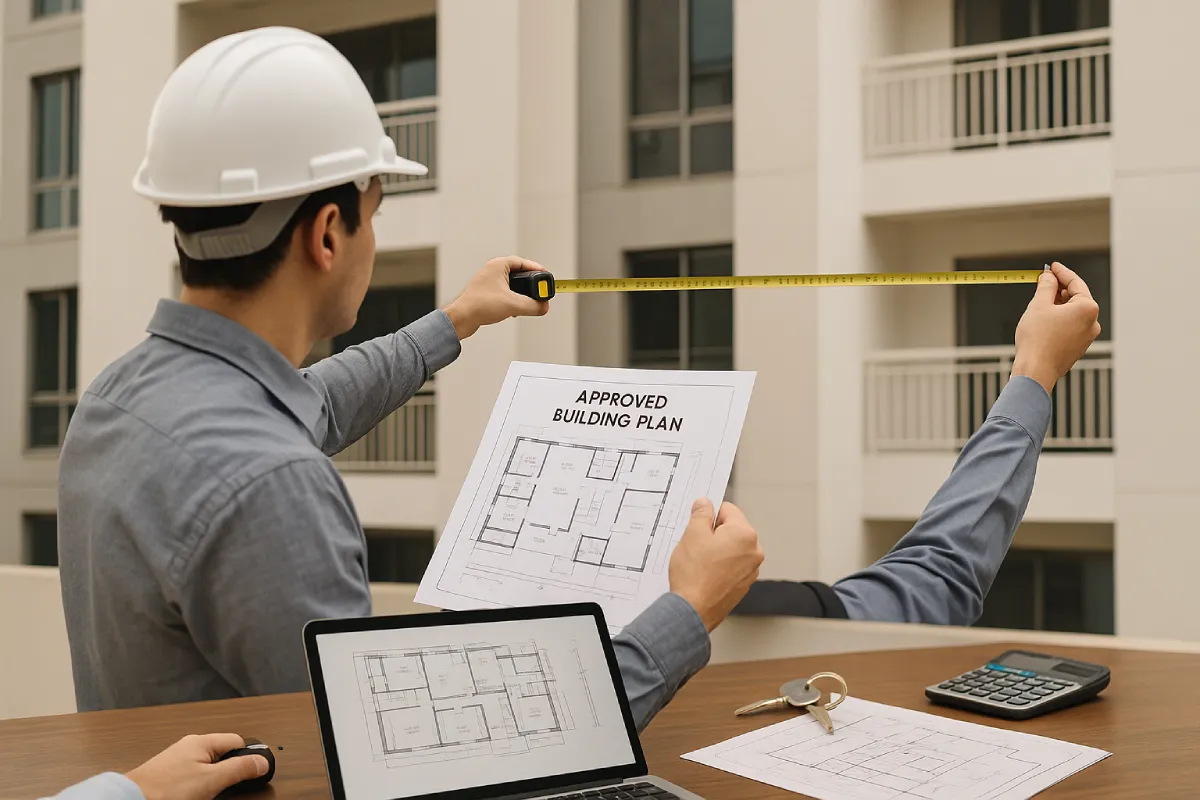
Collect the building plan approval. Measure setbacks on site with a tape. Check floor‑area ratio compliance. Any deviation above five percent needs regularisation or could stop loans.
3.6 Validate Occupancy Certificate
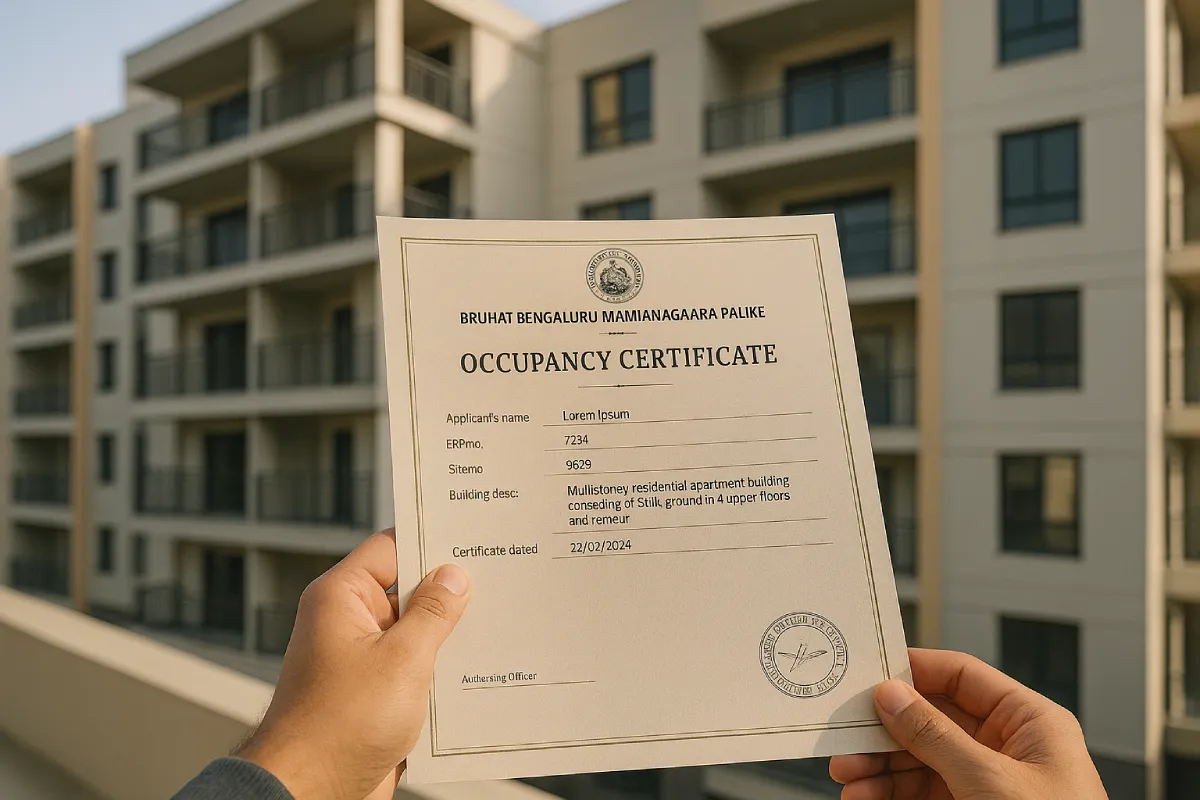
Ask for the final Occupancy Certificate from the local body. Without an OC, utilities and resale become tough. Banks may refuse top‑ups without this safety document.
3.7 Conduct Physical Boundary Survey
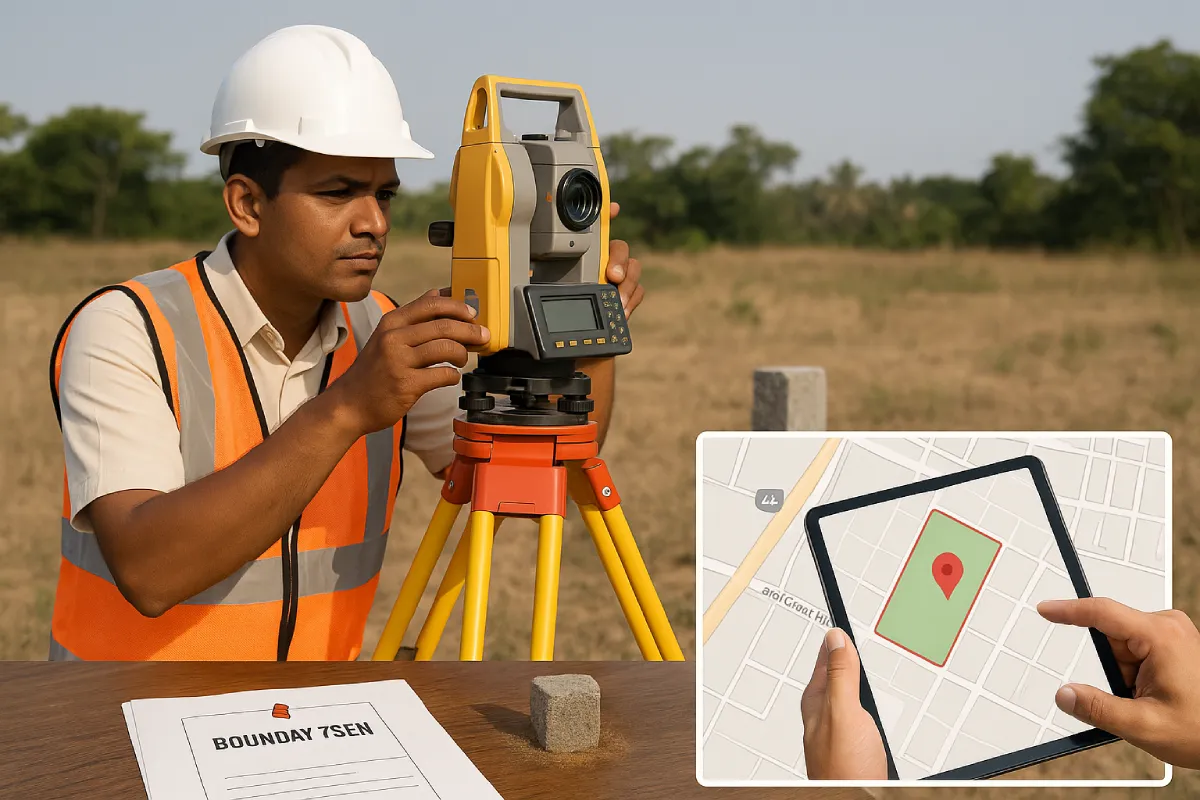
Hire a licensed surveyor. Compare GPS points with the survey sketch. Encroachments surface early, avoiding neighbour disputes later.
3.8 Scan for Litigation and Liens
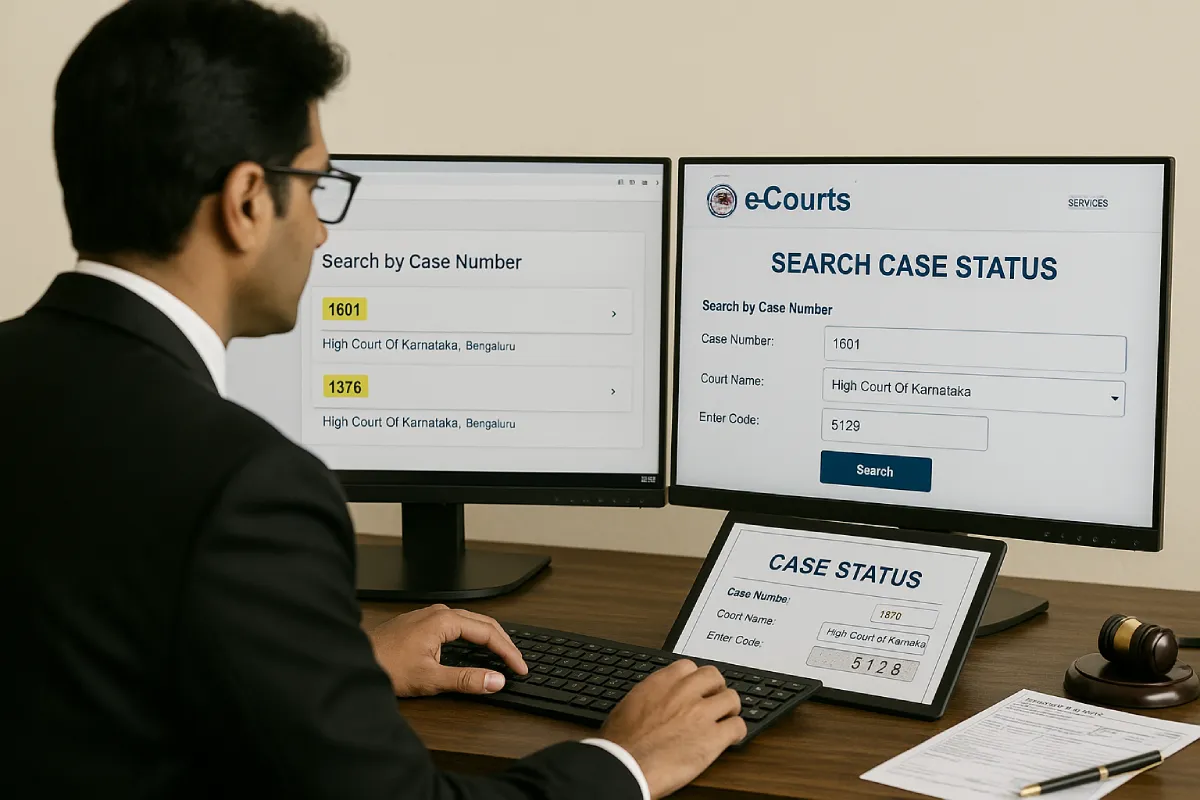
Search e‑Courts using seller names. Look for pending civil or criminal matters involving the property. Also, check public notices in leading newspapers. Litigation discovered late can stall registration.
3.9 Verify Utility Dues
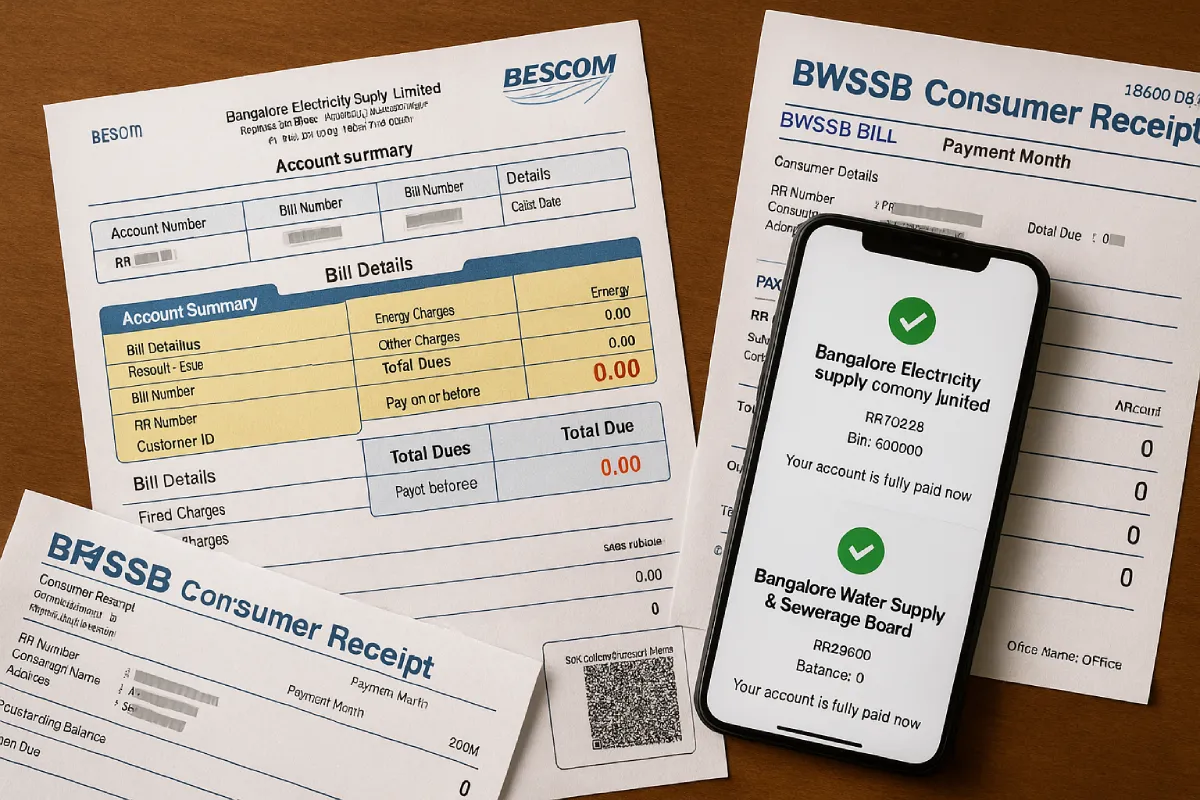
Collect the latest BESCOM, BWSSB, and maintenance bills. Unpaid charges add to your move‑in cost. Ensure zero balance letters are obtained.
3.10 Compile a Due Diligence Report
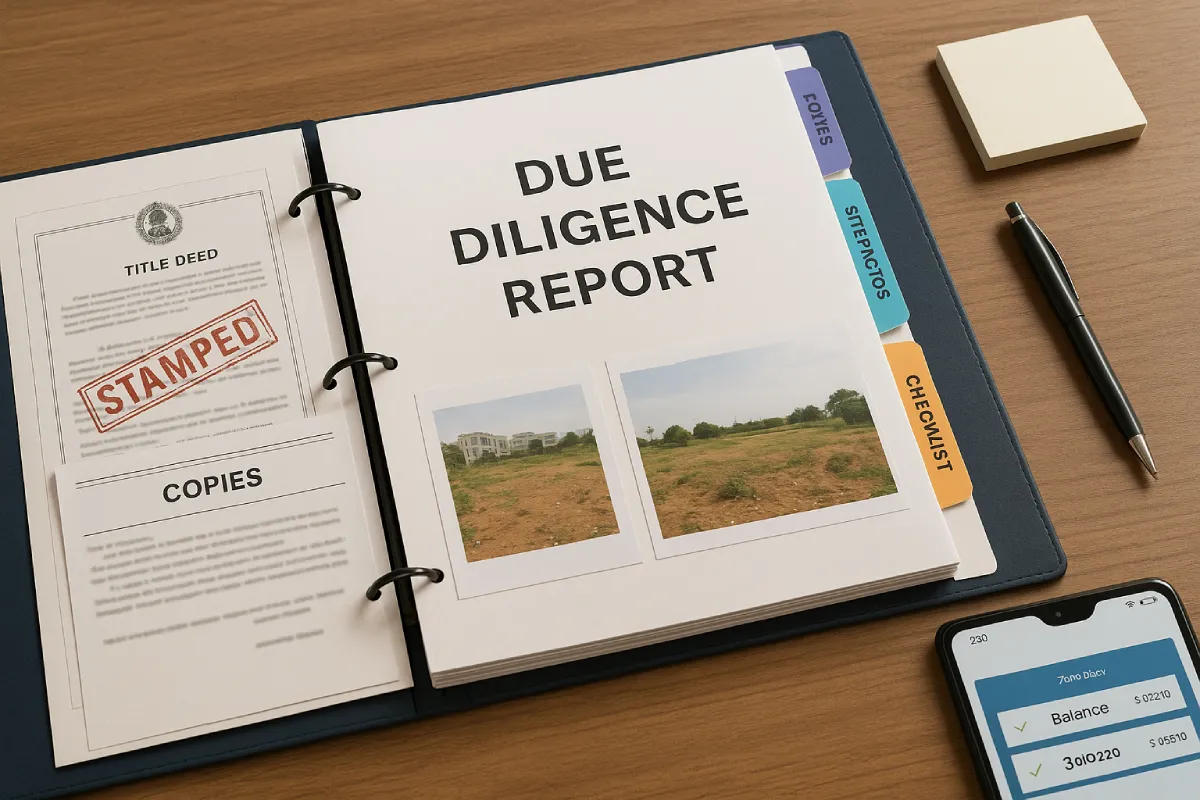
Summarise findings in a single report. Attach certified copies, site photos, and survey sketches. This report gives confidence to banks and future buyers. Completing this step means you have mastered how to verify property in Bangalore.
3.11 Cross‑Check RERA and Project Approvals
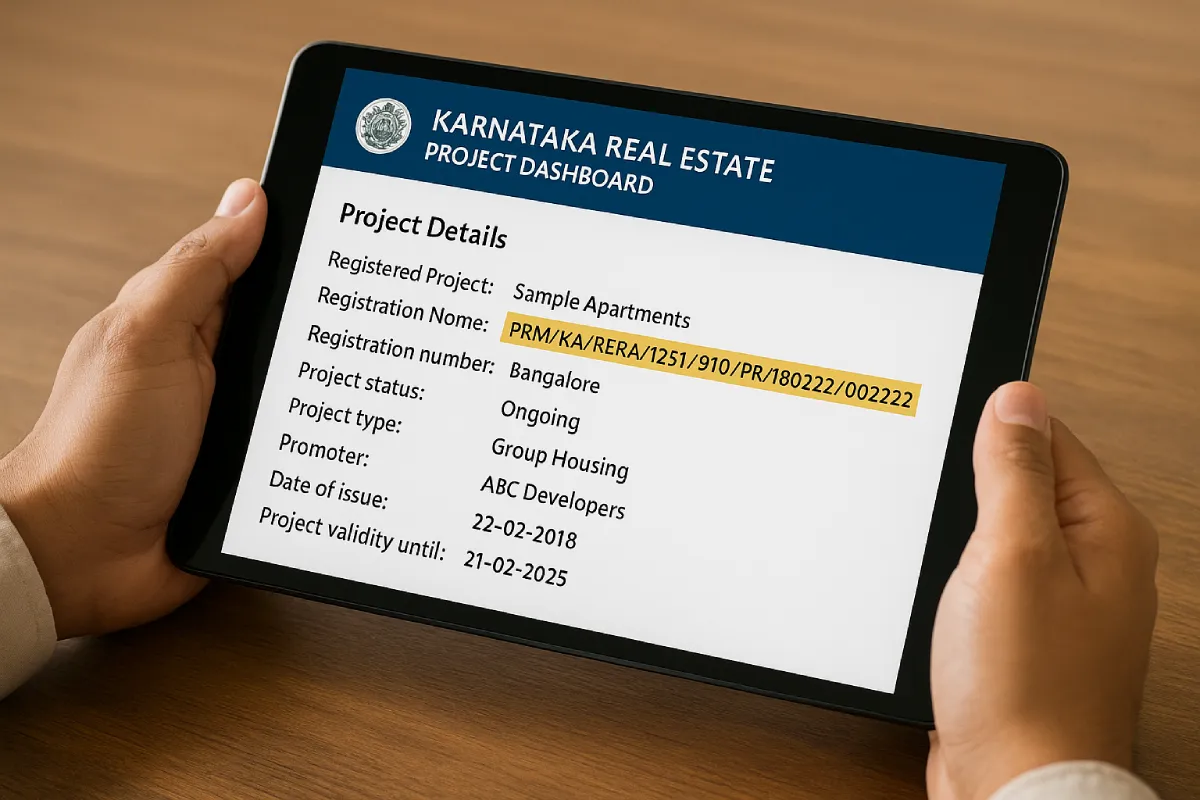
Open the Karnataka RERA portal. Search the project registration number. Confirm approved layout, promised amenities, and completion dates. Unregistered projects raise immediate red flags.
3.12 Review Bank Legal Opinions
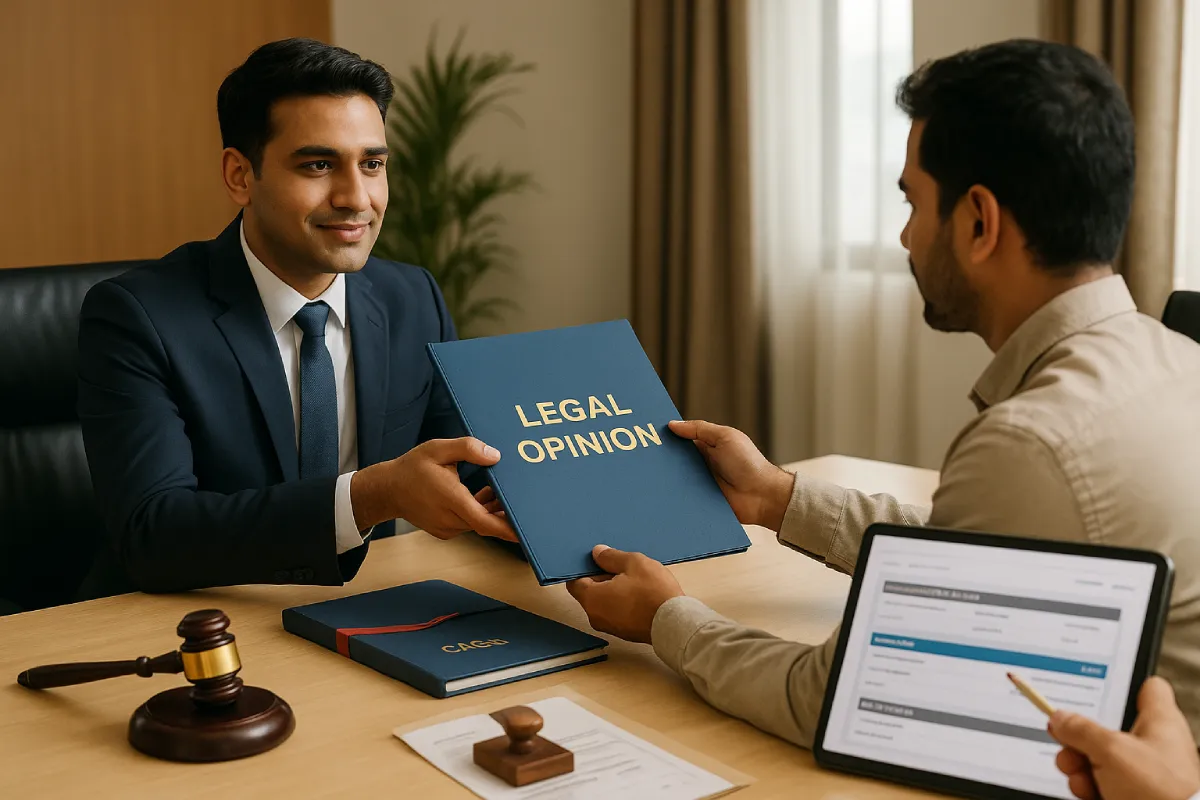
Ask the seller if any bank sanctioned a loan. Request the bank’s legal opinion. Compare it with your due diligence. Differences signal hidden gaps.
3.13 Investigate Builder Reputation
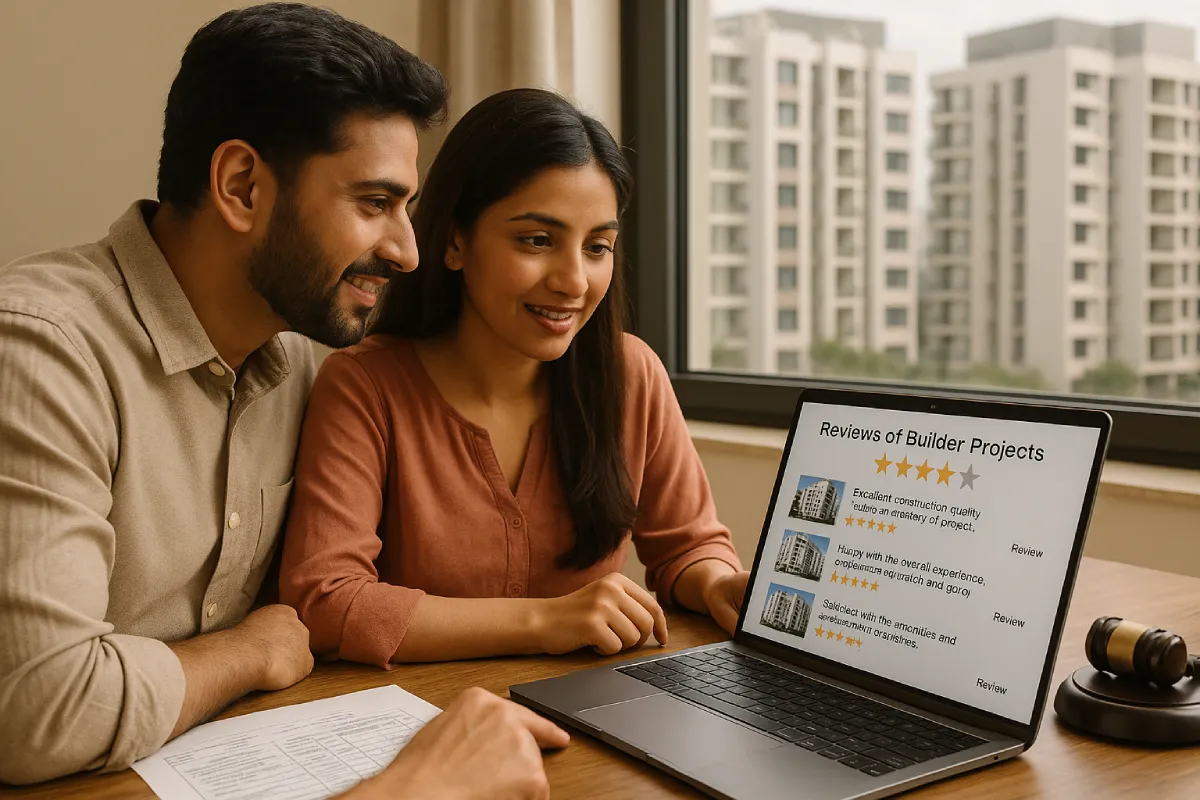
Study past projects. Check delivery timelines, litigation history, and quality ratings. Reliable builders simplify how to verify property in Bangalore because records stay tidy.
3.14 Check Environmental Clearances
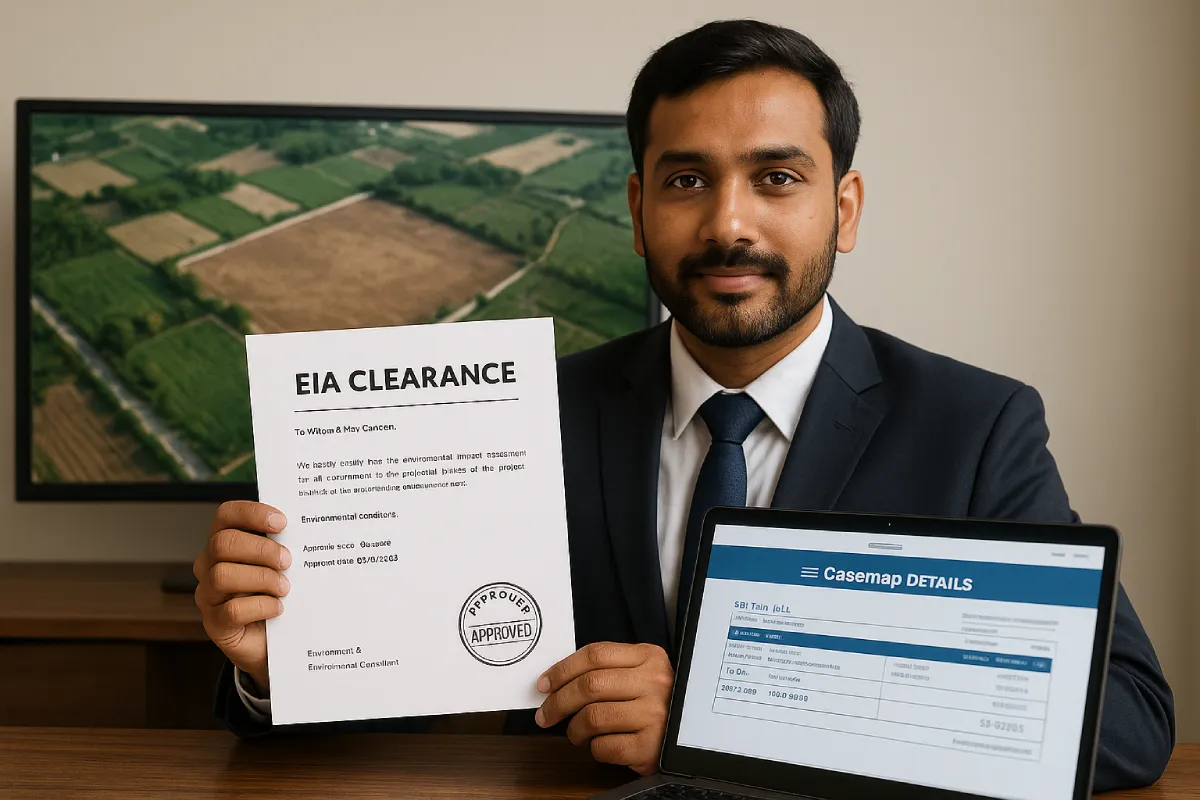
For large plots, ask for Environmental Impact Assessment approvals. Missing an EIA can delay occupancy and lead to fines.
3.15 Verify Road Widening Notifications
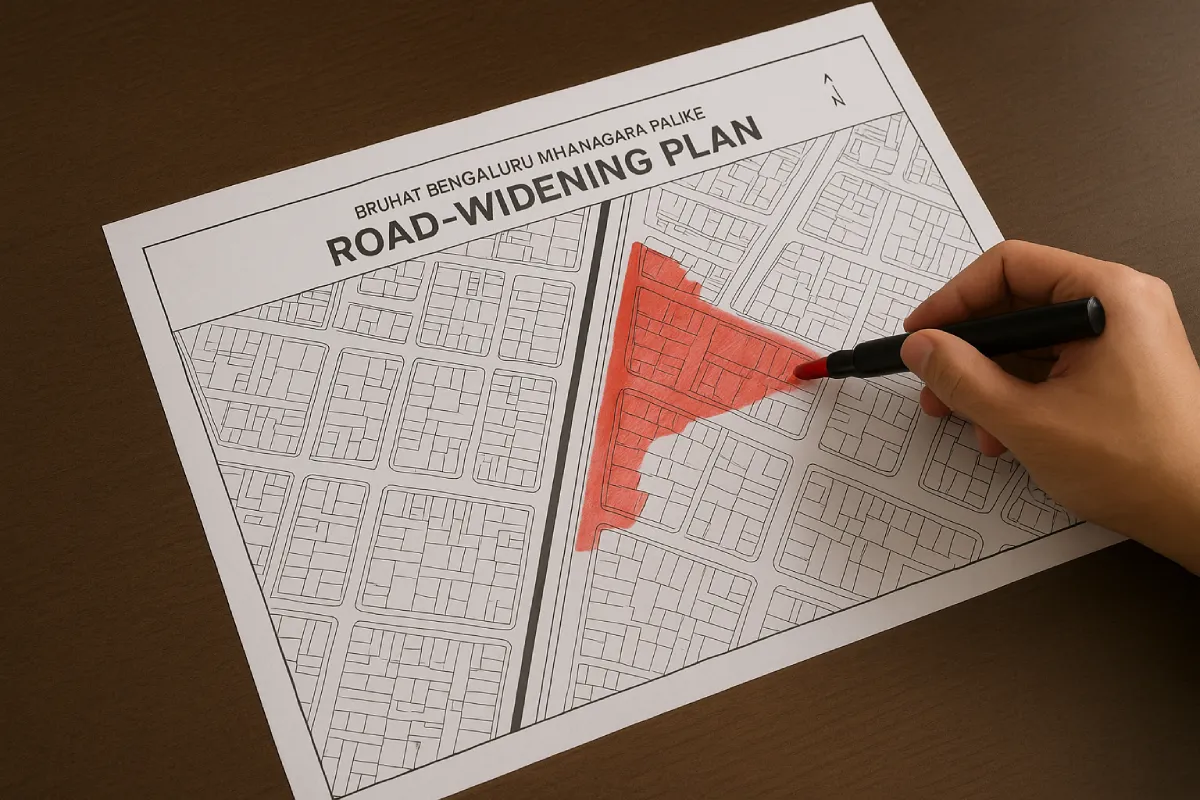
Consult the BBMP road‑widening plans. Plots marked for future acquisition lose frontage and value. Plan exits if risks appear.
4. Red Flags and Immediate Remedies
Spotting trouble early saves money and time. Examine each red flag carefully, confirm facts with certified records, and demand corrective evidence from the seller before paying another rupee. Urgent action today prevents expensive litigation tomorrow.
- A gift deed executed within three years can be challenged by creditors.
- Encumbrance Certificate shows recent mortgage; insist on bank NOC.
- Khata marked ‘B’; budget conversion charges or walk away.
- The zoning map lists the plot as a valley buffer; avoid purchase.
- OC missing; demand price reduction or builder indemnity.
- Project absent on RERA portal; assume risky compliance and secure legal escrow.
- Court search reveals pending partition suit; step back until resolved.
Discover any red flags? Pause and consult a lawyer before proceeding.
5. How a Property Lawyer Adds Value When You Verify Property in Bangalore
Property lawyers in Bangalore dig deeper than checklists. They visit sub‑registrar archives, spot forged seals, and draft clauses that refund your advance if defects arise. They negotiate bank NOCs and prepare indemnity bonds. Their expertise saves weeks and prevents lakh‑level losses.
Lawyers also review sale agreements, ensure earnest money clauses, and guide token payments through escrow. They understand how to verify property in Bangalore within strict timelines.
Budget early to avoid a cash crunch. Verification agencies may offer bundled pricing with legal drafting.
6. Post‑Verification Next Steps
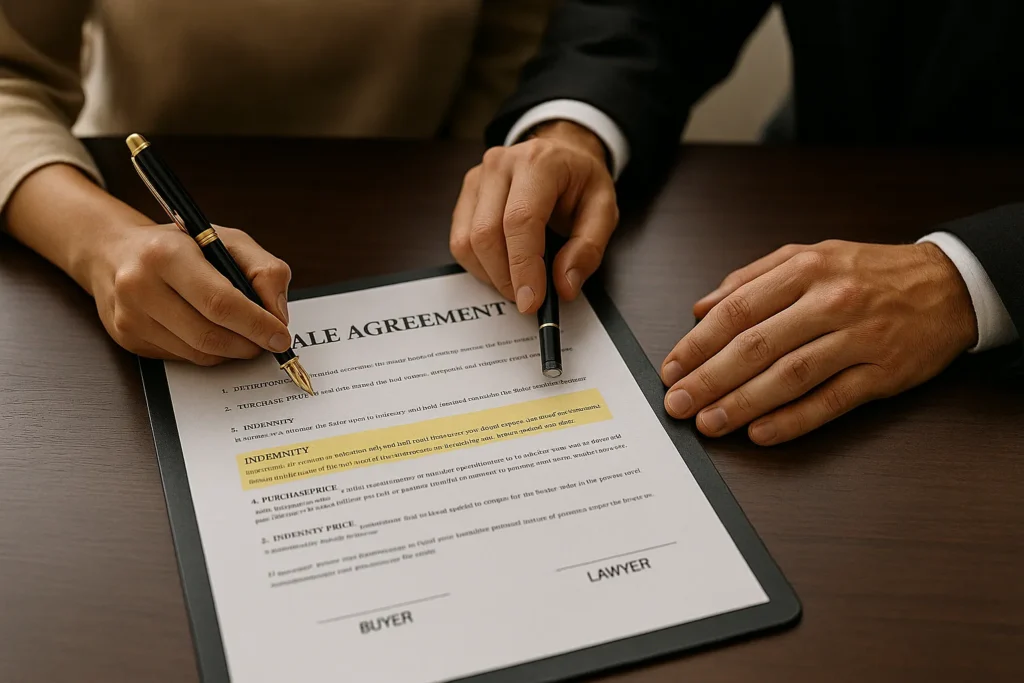
Wrap up verification by recording next actions clearly for a smooth closing. These practical steps keep sellers accountable, guard your earnest money, and drive the deal toward timely registration without last‑minute surprises.
- Sign a detailed sale agreement with indemnity clauses.
- Pay token advance through traceable banking channels.
- Plan stamp duty and registration slots early.
- Organise witnesses and ID proofs in advance.
- Keep copies of all verified documents safe for life.
- Monitor seller obligations, such as mortgage clearance, until closing.
- Schedule registration within the agreed timeline to prevent rate hikes.
7. Case Study – Verification Saved ₹50 Lakh Losses
Rahul booked an apartment after viewing glossy brochures. His lawyer insisted on a full check. The Encumbrance Certificate revealed a builder’s mortgage. Rahul withheld the token advance. The builder cleared the loan later, and Rahul completed the purchase safely. Rahul’s total verification cost was ₹20,000. The saved headache was priceless. Stories like this show why knowing how to verify property in Bangalore is essential.
8. FAQ on How to Verify Property in Bangalore
Do I need a lawyer to verify property?
Lawyers find defects that casual checks miss.
How long does verification take?
Standard apartments need three days. Complex land deals need two weeks.
Can I rely only on bank legal reports?
Banks check only the loan security. You need full protection.
Is an Occupancy Certificate compulsory?
Yes, for new flats. Old properties may follow older norms, but banks still prefer OC.
Where can I get Khata online?
Use the BBMP or BDA portals. Input the PID number or the survey detail.
What if the seller lost the original deeds?
Insist on certified copies and advertise public notice before purchase.
Does RERA guarantee safety?
RERA helps, but your independent verification adds stronger protection.
9. Conclusion – Secure Your Bengaluru Investment
You now understand how to verify property in Bangalore step by step. Follow each task, watch red flags, and consult experts. Property verification is essentially a preventive measure, akin to the “prevention is better than cure” analogy. Verification costs little but protects your family’s largest asset.
Aditya & Co. Advocates – Lawyers in Bangalore, Your Constant Legal Guardian stands ready to assist whenever you decide to purchase. We have verified more than 600 property documents last year.
Disclaimer: This guide is informational and not legal advice. Always consult a qualified advocate before final decisions.







